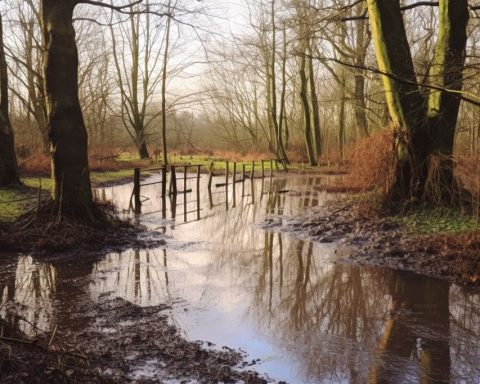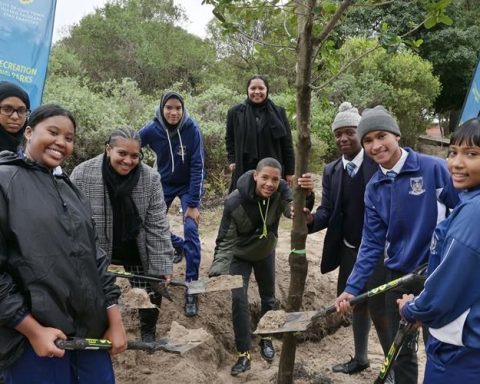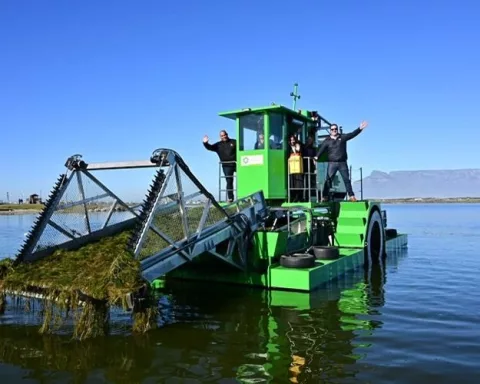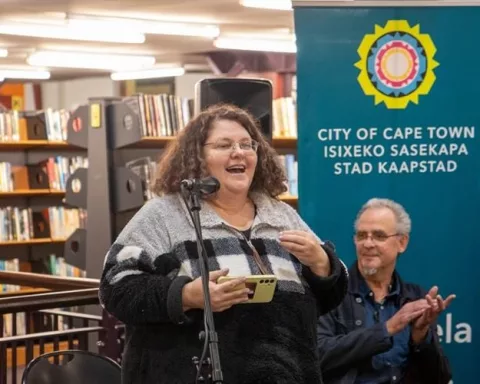Cape Town is inviting locals to get involved in its nature reserve advisory committees to create a deeper connection with its green spaces. Protected Area Advisory Committees (PAACs) serve as a link between citizens and the wilderness, encouraging discussion and mutual understanding. The committees are open to all, including neighboring communities and special interest groups, and offer a chance to become protectors of the city’s natural wealth.
Cape Town is calling for civic participation in its nature reserve advisory committees to establish a more profound connection between citizens and its lush green spaces. The Protected Area Advisory Committees (PAACs) serve as a link connecting the local populace to the wilderness, stimulating more discussion, and cultivating a setting of mutual admiration and comprehension. The committees are open to neighboring communities, special interest groups, and formally constituted organizations.
In the vibrant heart of Cape Town, a summons has been issued for local entities to take part and take charge in the advisory committees of the city’s nature reserves. Under the guidance of Deputy Mayor and Mayoral Committee Member for Spatial Planning and Environment, Alderman Eddie Andrews, the City of Cape Town aims to establish a more profound connection between its citizens and its lush green spaces.
The Role of The Protected Area Advisory Committees
Central to the city’s efforts in promoting the local nature reserves are the Protected Area Advisory Committees (PAACs). Following their latest reconstitution in 2021, these committees have dedicated themselves to forming harmonious relationships between the dwellers and the reserves. They serve as a link connecting the local populace to the wilderness, stimulating more discussion, and cultivating a setting of mutual admiration and comprehension.
Invitations are currently being extended for organizations to become part of these PAACs. This chance is not restricted to those specializing in nature conservation but is also open to neighboring communities and special interest groups. The composition of these committees includes representatives from formally constituted organizations, who serve not merely as individuals but as the spokespersons of their respective groups or organizations.
The Vision Behind the Initiative
As Alderman Andrews eloquently expressed, the nature reserves offer “a serene refuge far from the bustling concrete urban jungle, presents chances for education and discovery, and aids in preserving our biodiversity for the forthcoming generations.” The opportunity to join these committees is an open invitation to become a protector of the city’s natural wealth.
The PAACs represent the following nature reserves:
– Blaauwberg
– Bracken, inclusive of Perdekop and Haasendal
– Durbanville, inclusive of Uitkamp Wetland and Botterblom
– False Bay, inclusive of Rondevlei, Zeekoevlei, Pelican Park, Slangetjiesbos, and Strandfontein birding area
– Helderberg, inclusive of Silverboomkloof, Harmony Flats and Morkel’s Cottage
– Steenbras
– Table Bay, inclusive of Rietvlei, Diep River, Milnerton Racecourse and Zoarvlei
– Tygerberg, inclusive of Bothasig Fynbos Nature Reserve and Arriesfontein
– Witzands Aquifer, inclusive of the Klein Dassenberg Hills
– Wolfgat, inclusive of Zandwolf, Strandfontein Aquifer and Macassar Dunes
– Zandvlei, inclusive of Muizenberg East
– Edith Stephens
The Responsibility and Impact of the Committees
Each reserve symbolizes a distinct ecosystem and is a tribute to the varied abundance of Cape Town’s wildlife and vegetation. The advisory committees’ responsibility is to furnish guidance and suggestions regarding these reserves’ administration. Furthermore, the City may occasionally appoint advisory members who specialize in certain areas, allowing them to bring their expertise to the committees.
The cut-off for application submissions is 17 May 2024. Organizations interested in embracing this responsibility can apply via the city’s dedicated webpage or get in touch with paac@capetown.gov.za for additional information and application forms.
In a world where urbanization is rapidly taking over, these nature reserves offer a much-required sanctuary, an avenue for learning, and an opportunity to aid in conserving our earth’s biodiversity. The offer to join these committees presents a chance to be involved in this transformation and have a real impact in preserving Cape Town’s natural legacy for the forthcoming generations.
What are the nature reserve advisory committees in Cape Town?
The nature reserve advisory committees in Cape Town are called Protected Area Advisory Committees (PAACs).
What is the role of the Protected Area Advisory Committees?
The role of the Protected Area Advisory Committees is to serve as a link between citizens and the wilderness, encourage discussion and mutual understanding, and provide guidance and suggestions regarding the administration of the nature reserves in Cape Town.
Who can join the Protected Area Advisory Committees?
The Protected Area Advisory Committees are open to all, including neighboring communities, special interest groups, and formally constituted organizations.
Which nature reserves do the Protected Area Advisory Committees represent?
The Protected Area Advisory Committees represent a variety of nature reserves in Cape Town, including Blaauwberg, Durbanville, False Bay, Helderberg, Steenbras, Table Bay, Tygerberg, Witzands Aquifer, Wolfgat, Zandvlei, and Edith Stephens.
What is the vision behind the initiative to invite civic participation in nature reserve committees?
The initiative aims to establish a deeper connection between Cape Town’s citizens and its green spaces, promote discussion and mutual understanding, and encourage the protection of the city’s natural wealth.
How can organizations apply to become part of the Protected Area Advisory Committees?
Interested organizations can apply via the city’s dedicated webpage or get in touch with paac@capetown.gov.za for additional information and application forms. The cut-off for application submissions is 17 May 2024.











